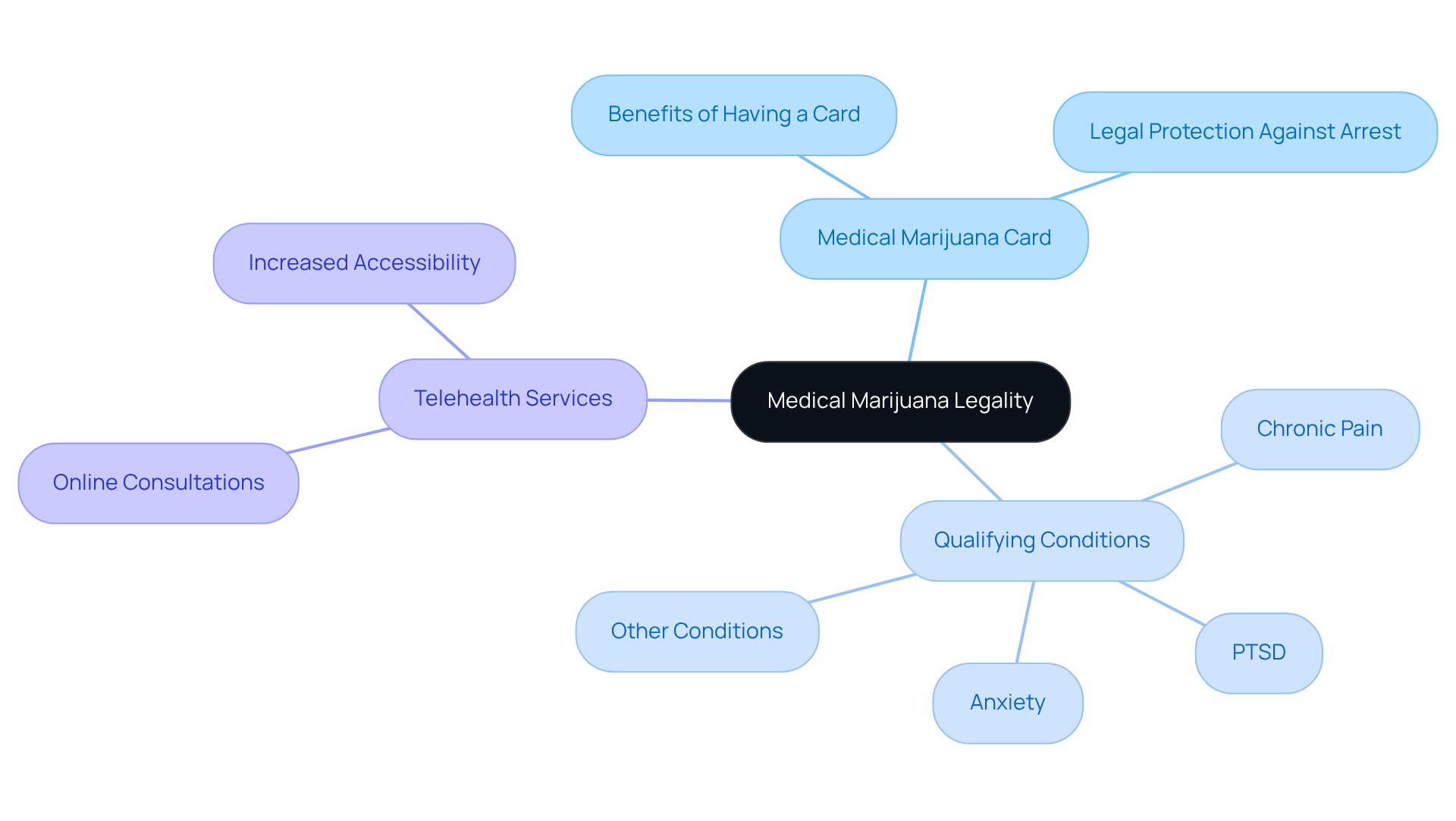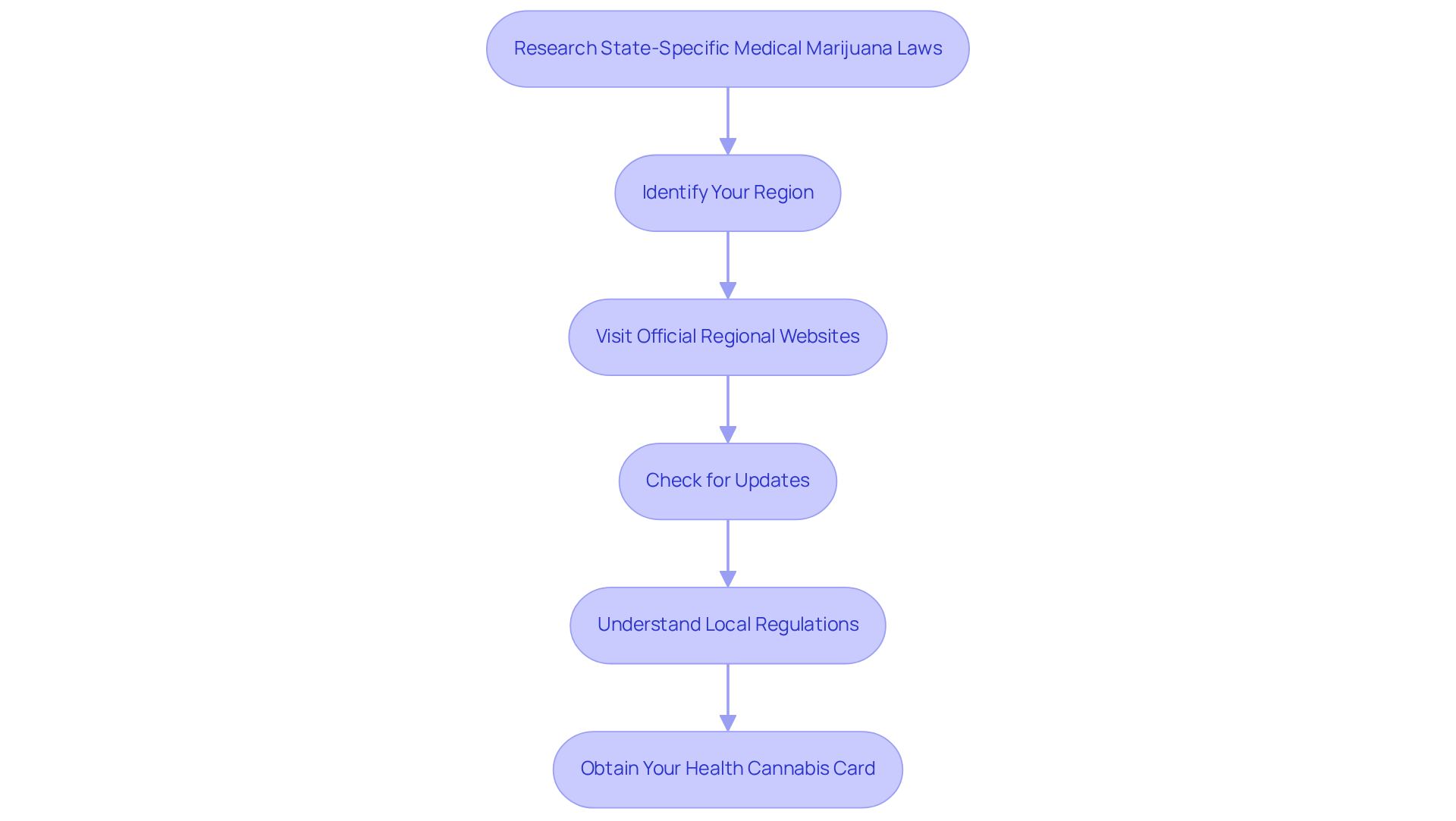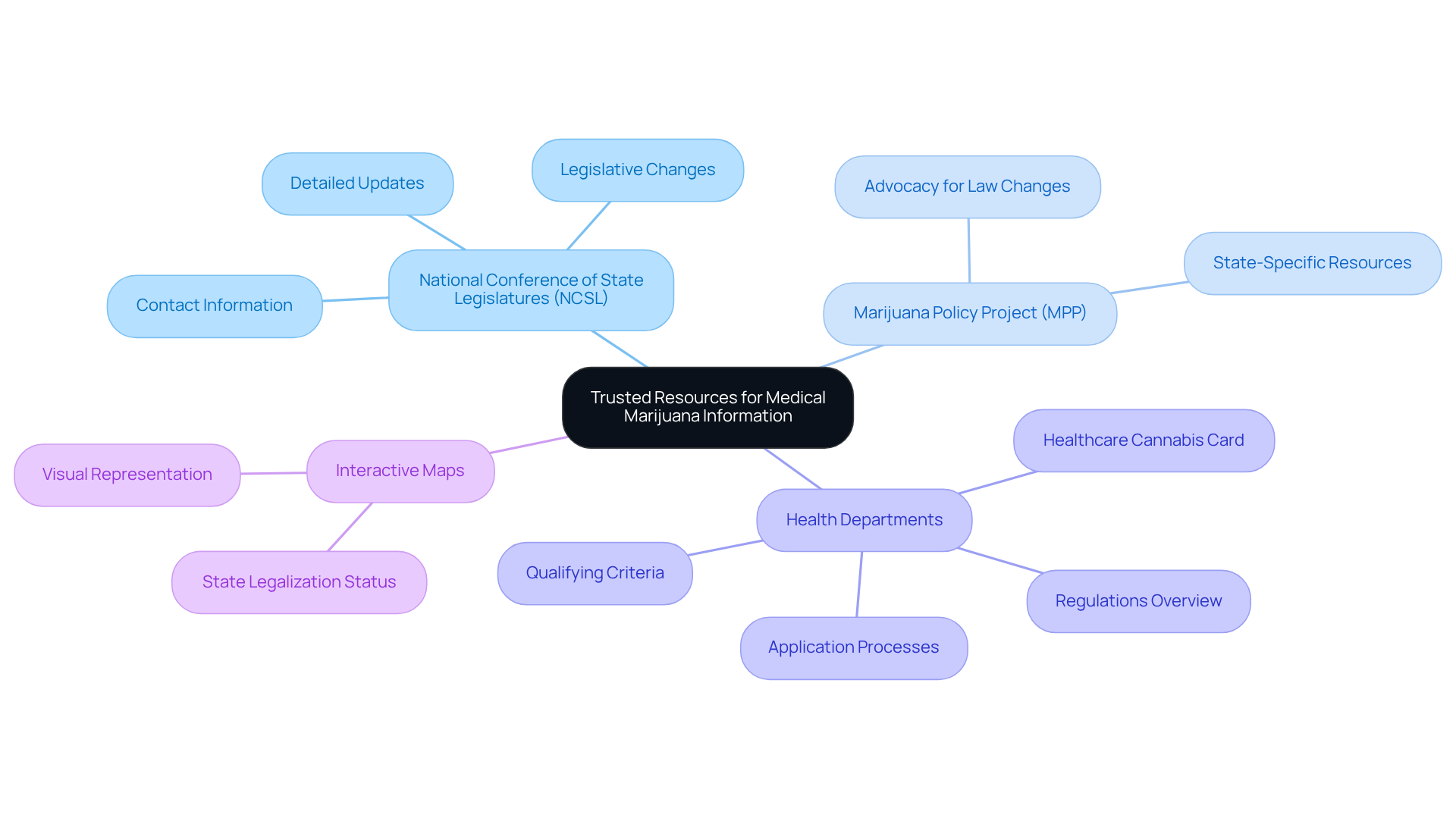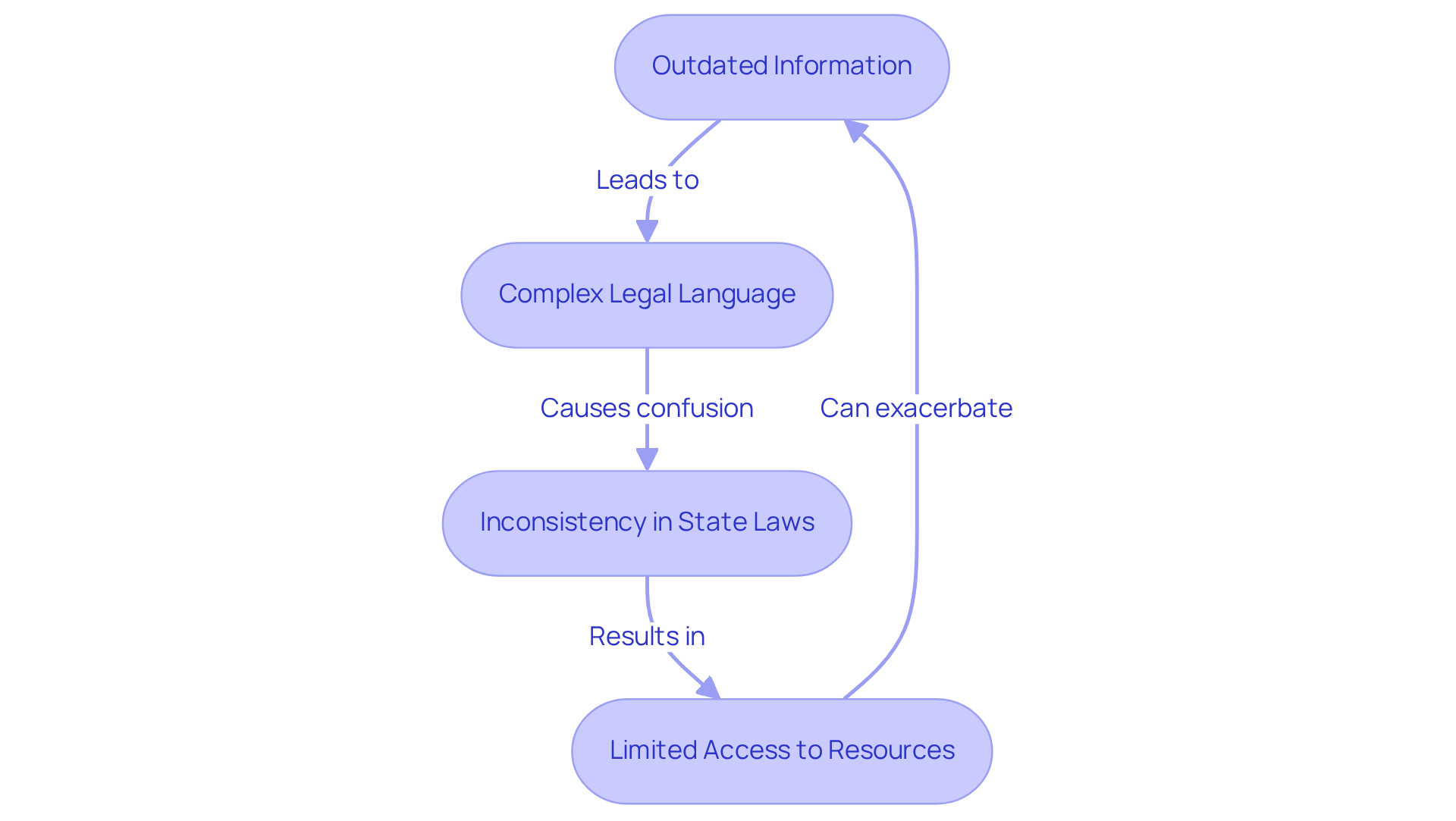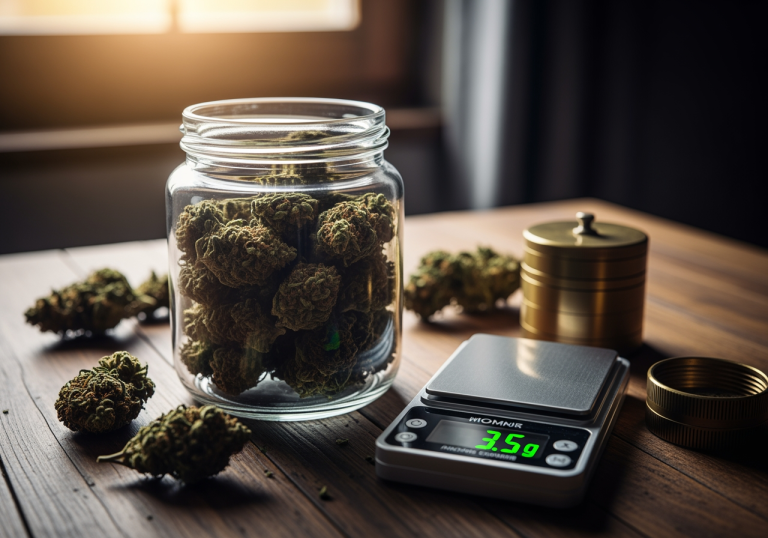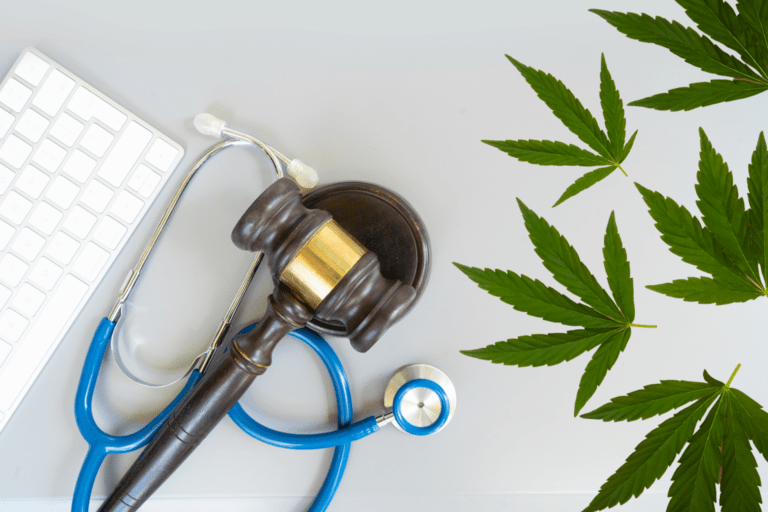4 Steps to Discover How Many States Have Legalized Medical Marijuana
by Maya Green · September 24, 2025
Discover how many states have legalized medical marijuana and navigate cannabis laws effectively.
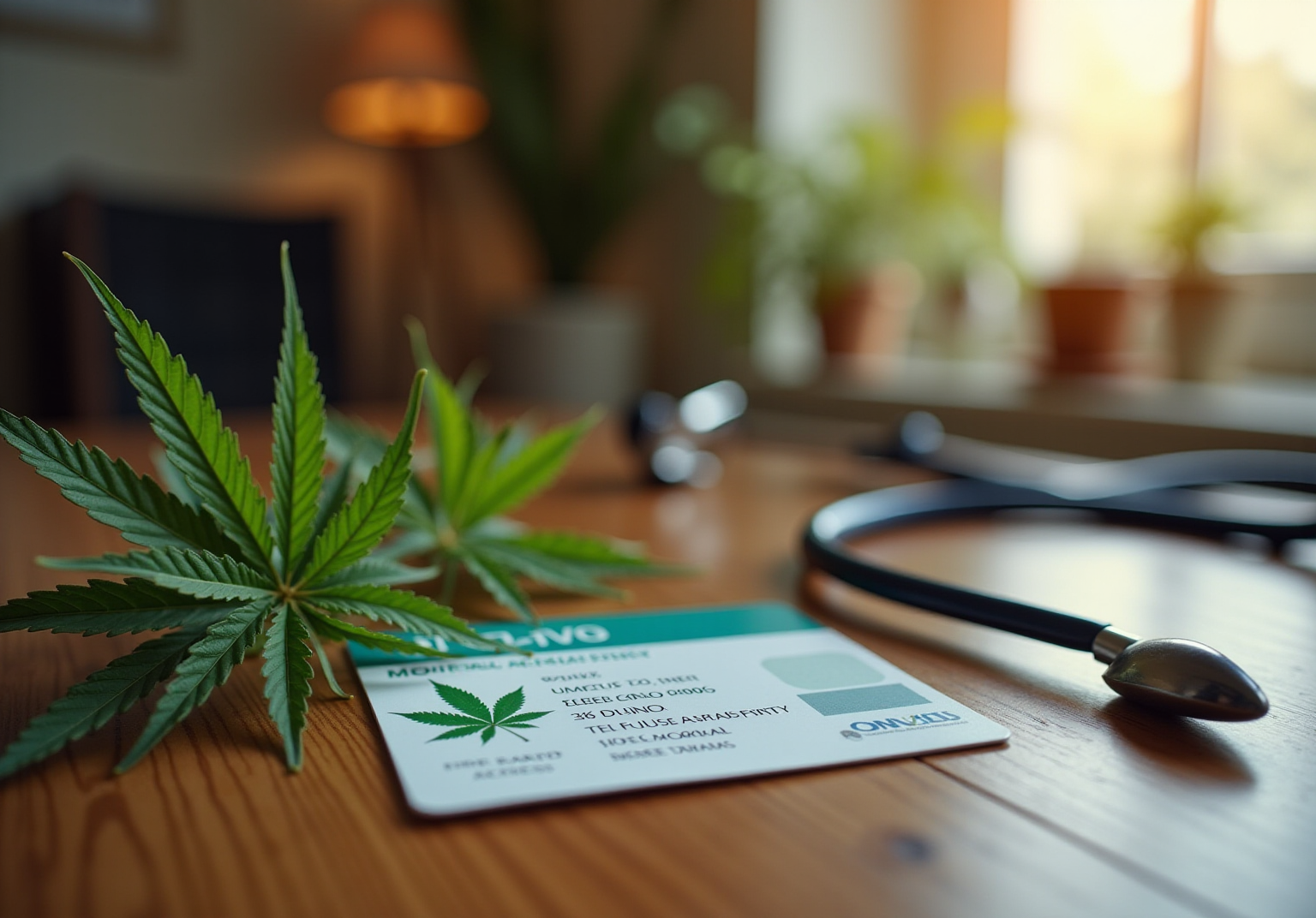
Overview
As of September 2025, 40 states and the District of Columbia have legalized medical marijuana in various forms. This change reflects a significant shift in public policy, recognizing the therapeutic benefits of this treatment. It’s important to acknowledge that navigating this legal landscape can feel overwhelming.
To help you on this journey, consider taking essential steps to understand your options. Start by:
- Researching state-specific laws; each state has its own regulations that can affect your access to medical marijuana.
- Utilizing trusted resources to gather reliable information.
- Reaching out to local organizations that can guide you.
Understanding the application process for obtaining a medical marijuana card is crucial. You may find that this process varies by state, but knowing what to expect can ease your concerns. Remember, you are not alone in this; many individuals have successfully navigated these steps before you.
As you move forward, take comfort in the knowledge that there are supportive communities and resources available to assist you. By taking these steps, you can empower yourself to make informed decisions about your health and well-being. It’s a journey worth taking, and you have the strength to navigate it.
Introduction
The landscape of medical marijuana legality in the United States is rapidly evolving, bringing with it significant implications for those seeking therapeutic relief. As of September 2025, an impressive 40 states and the District of Columbia have recognized the potential benefits of medical cannabis. However, navigating the complexities of state-specific laws can feel daunting. It’s important to remember that you are not alone in this journey. How can you ensure that you remain informed and compliant with these ever-changing regulations while accessing the relief you need?
This guide aims to illuminate the essential steps to uncover the legal status of medical marijuana across the country. By empowering yourself with knowledge, you can take control of your health and well-being. Together, we will explore the information you need to navigate this landscape with confidence and compassion.
Understand the Basics of Medical Marijuana Legality
The legality of cannabis for therapeutic use varies significantly across the United States, impacting many individuals seeking relief from their struggles. As of September 2025, 40 states and the District of Columbia have embraced therapeutic cannabis in some form, prompting the inquiry of how many states have legalized medical marijuanas, and highlighting a growing recognition of its potential health benefits. Understanding a few key concepts can help you navigate this landscape:
- Medical Marijuana Card: This important document, issued by licensed healthcare providers, allows patients to legally purchase and use medical cannabis, offering a pathway to relief.
- Qualifying Conditions: Specific health issues, such as chronic pain, PTSD, and anxiety, can qualify individuals for therapeutic cannabis, providing hope for those in need.
- Telehealth Services: Online consultations with certified healthcare professionals make it easier to obtain a cannabis card, increasing accessibility for many.
The introduction of cannabis cards has significantly improved access for individuals in various regions. For example, states with established registries offer legal protection against arrest for possession, ensuring that individuals can obtain their necessary medications without fear. Healthcare professionals are increasingly advocating for the compassionate use of cannabis, emphasizing its safety and effectiveness. Experts note that the therapeutic properties of cannabinoids can alleviate symptoms associated with numerous conditions, enhancing the quality of life for many patients.
It’s important to grasp these fundamental components to navigate the complexities of cannabis legality and access. You may find that understanding your rights and options empowers you to seek the relief you deserve.
Research State-Specific Medical Marijuana Laws
To effectively research state-specific medical marijuana laws and obtain your medical marijuana card, consider following these compassionate steps:
-
Identify Your Region: It’s essential to start by determining your place of residence, as laws can vary significantly across the country. As of June 26, 2025, it can be noted that how many states have legalized medical marijuanas includes forty regions, three territories, and the District of Columbia permitting the therapeutic use of cannabis products. This highlights the commonality of these regulations, which can be a relief to many seeking support.
-
Visit Official Regional Websites: Take a moment to access your region’s health department or cannabis control board website. These platforms usually provide the most precise and up-to-date information about cannabis regulations, including the procedure for registering and acquiring your cannabis card. Knowing where to find accurate information can ease your journey.
-
Check for Updates: Given the dynamic nature of cannabis legislation, it’s important to regularly look for the latest updates or amendments. Resources like the National Conference of State Legislatures (NCSL) and the Marijuana Policy Project (MPP) offer thorough insights into recent modifications in cannabis regulations across all regions. The NCSL’s State Cannabis Policy Enactment Database is particularly useful for tracking enacted legislation, ensuring you stay informed.
-
Understand Local Regulations: Remember, some cities or counties may impose additional regulations. Therefore, it’s essential to consult local government websites for any specific rules that may apply in your area. This knowledge can empower you to navigate your local landscape effectively.
Once you possess your health cannabis card, you can visit nearby dispensaries to obtain therapeutic cannabis products. Many patients prefer these options over prescription medications due to their efficacy in alleviating pain, anxiety, and other conditions without the dangers linked to opioids. Understanding the potential therapeutic value of cannabinoid drugs, as noted by the Institute of Medicine, can further guide your research and decision-making process.
By adhering to these guidelines, you can remain updated on the changing legal environment regarding cannabis in your region. This ensures compliance and access to essential resources, allowing you to take confident steps toward your well-being.
Utilize Trusted Resources for Accurate Information
To obtain accurate information about medical marijuana laws, it is essential to rely on trusted resources that can guide you through this complex landscape:
- National Conference of State Legislatures (NCSL): This organization offers detailed updates on state laws and legislative changes concerning medical marijuana. Staying informed about these evolving regulations is vital for your peace of mind.
- Marijuana Policy Project (MPP): MPP advocates for cannabis law changes and provides state-specific resources. These tools can help you navigate the intricacies of therapeutic cannabis regulations, ensuring you feel supported in your journey.
- Health Departments: Your local health authority typically has a dedicated section on cannabis, outlining important regulations, application processes, and qualifying criteria for individuals. To acquire your healthcare cannabis card, you may need to register with your region after obtaining your certification from a physician. Once your registration is approved, you will receive a downloadable identification card via email or by mail. This card is your key to visiting local dispensaries and purchasing medicinal cannabis products.
- Interactive Maps: Platforms like DISA and World Population Review feature interactive maps that visually depict how many states have legalized medical marijuana across the United States. These resources allow you to quickly identify where cannabis is permitted, making it easier for you to understand your options.
Utilizing these resources not only ensures that the information you gather is precise and up-to-date but also empowers you to make informed choices regarding your cannabis needs. By leveraging these trusted sources, you can gain a clearer understanding of the legal landscape and take confident steps toward managing your health.
Troubleshoot Common Issues in Finding Legal Information
When investigating cannabis regulations, it’s natural to encounter several common challenges. Let’s explore how you can effectively navigate these hurdles together:
-
Outdated Information: It’s frustrating when conflicting information arises from outdated sources. Always take a moment to verify the publication date and prioritize the most recent updates from official government websites. Remember, regulations can change frequently, and recent law changes in Arkansas effective August 1, 2025, demonstrate the importance of staying current.
-
Complex Legal Language: Legal terminology can feel overwhelming. If you come across terms that seem unclear, don’t hesitate to seek out glossaries or legal guides that simplify these concepts. Understanding the language is crucial for navigating legal documents and regulations, and you deserve to feel confident in your research.
-
The inconsistency in state laws regarding how many states have legalized medical marijuana can create confusion, particularly among neighboring states. You may find it helpful to utilize comparison charts from reputable sources like the National Conference of State Legislatures (NCSL) to clarify differences and ensure you have accurate information.
-
Limited Access to Resources: If you’re facing difficulties accessing certain websites, consider using a VPN or trying a different device. Local libraries can also be valuable resources, often providing access to legal databases and knowledgeable staff who are eager to assist with your research.
By proactively addressing these common issues, you can streamline your research process and gain a clearer understanding of medical marijuana laws. This knowledge ultimately empowers you to make informed decisions, and remember, you’re not alone on this journey.
Conclusion
Understanding the landscape of medical marijuana legality is crucial for individuals seeking relief through therapeutic cannabis. With 40 states and the District of Columbia recognizing its potential benefits as of September 2025, the movement toward broader acceptance of medical marijuana continues to gain momentum. This growing acknowledgment highlights the importance of being informed about the rights and options available to patients.
Throughout this guide, key points have been emphasized, including:
- The significance of obtaining a medical marijuana card
- The necessity of understanding state-specific laws
- The value of utilizing trusted resources for accurate information
By following the outlined steps and leveraging reliable platforms, individuals can navigate the complexities of cannabis regulations more effectively. It’s important to remember that awareness of local laws and access to necessary resources can empower you in your pursuit of health and well-being.
Ultimately, staying informed about the evolving legal landscape surrounding medical marijuana is essential for anyone considering its use. Engaging with reputable sources and understanding the nuances of state laws not only enhances your personal knowledge but also contributes to a broader dialogue about the therapeutic potential of cannabis. You may find that taking proactive steps in this journey can lead to better health outcomes and foster a more informed community advocating for compassionate care.
Frequently Asked Questions
How many states in the U.S. have legalized medical marijuana as of September 2025?
As of September 2025, 40 states and the District of Columbia have legalized medical marijuana in some form.
What is a Medical Marijuana Card?
A Medical Marijuana Card is a document issued by licensed healthcare providers that allows patients to legally purchase and use medical cannabis.
What are some qualifying conditions for obtaining a Medical Marijuana Card?
Qualifying conditions for a Medical Marijuana Card can include chronic pain, PTSD, and anxiety, among others.
How can individuals obtain a Medical Marijuana Card?
Individuals can obtain a Medical Marijuana Card through online consultations with certified healthcare professionals, which increases accessibility.
What legal protections do cannabis cards provide?
Cannabis cards offer legal protection against arrest for possession, allowing individuals to obtain their necessary medications without fear of legal repercussions.
What role do healthcare professionals play in the use of medical cannabis?
Healthcare professionals are increasingly advocating for the compassionate use of cannabis, highlighting its safety and effectiveness for treating various conditions.
What are the therapeutic properties of cannabinoids?
Cannabinoids have therapeutic properties that can alleviate symptoms associated with numerous conditions, potentially enhancing the quality of life for many patients.
Last Updated: September 23, 2025
Get Approved for Your Medical Marijuana Card in Minutes!

Get Your Medical Card
Connect with a licensed physician online in minutes

Like This Article?
Share with your friends
Table of Contents
Keep Reading
-
4 Steps to Obtain Your Medical Marijuanas GA Card Easily
Learn how to easily obtain your medical marijuanas GA card with our step-by-step guide.
-
How Many Grams In An Eighth Of Weed
Learn the ins and outs of cannabis measurements and find out exactly how many grams are in an eighth of weed. Don’t miss out on this essential knowledge – click here to become a cannabis measurement pro today!
-
Stay Up-to-Date with Medical Marijuana Laws and Regulations in NY
Stay informed about the latest medical marijuana laws and regulations in NY. Learn about the changes, updates, and FAQs. Get answers now!

